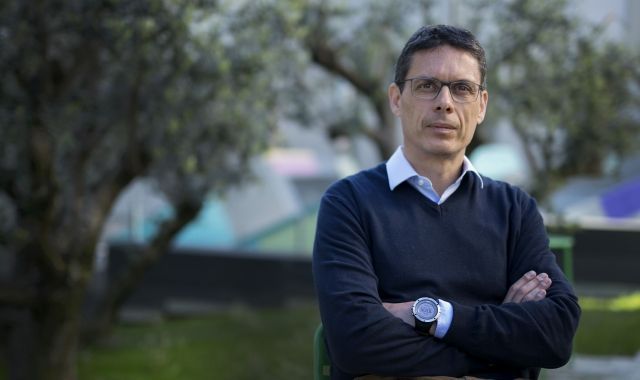
Friday was World AIDS Day. Who wouldn’t love to change the world by finding a cure to save the 1.1 million people that have died from illnesses associated with this virus? Aelix Therapeutics has turned this dream into reality by doing research to find a therapy for people suffering from AIDS. The project led by Jordi Naval goes way back: "We created the company and got the investment at the same time. We hit the ground running and we knew what we had to do," he says. As the Romantic French writer Victor Hugo said: "Nothing is more powerful than an idea whose time has come."
Aelix’s history cannot be understood without the public-private research consortium IrsiCaixa working alongside the Obra Social de La Caixa, Laboratoris Esteve, Can Ruti, Hospital Clínic, the Catalan government and ICREA. "We met and decided to create a spin-off to develop the clinical stages in patients infected with HIV," he says. With 25 years experience, everything began (again but differently) at the start of 2015 with the creation of a business model and a business plan, a solid patent, a clear regulatory framework and a need that was not covered.
Aelix was born with an advantage: capital of 11 million euros from three international investors: Ysios Barcelona, Caixa Capital Risc and Johnson&Johnson. So far, it is the first and only investment round.
The glory of 2024
The steps both in the regulations and the study to develop the therapy are done. Aelix has already carried out its first clinical trial and is waiting to get "efficiency results" before 2020. The market is as small as the world, while the team is as large as the six people ready to change it. Naval is the only Catalan and he says that "biotech companies usually don’t have many people because they farm out a lot of the work to specialised suppliers."
Naval: "The therapy we are developing is innovative on a global scale"
If the model has passed with flying colours, the next step is "to merge the company or be bought up by a multinational pharmaceutical company that can do the last studies with patients all over the world." On the verge of glory, all that will remain will be to launch the cure for HIV on the market in 2024. No one said saving lives was easy.
On the cutting edge of vaccines, immunology and diagnosis, the technical and scientific skills of three or four large groups is "very high". It all adds up. However, Naval has no doubt that "the therapy that we are developing is innovative on a global scale." It is not so much about who, but rather what and when. "We hope that one of us manages to find a medicine that improves the lives of patients infected with HIV," he adds.
A biotech’s turnover
Naval is sure that starting with capital is a guarantee: "Biotech companies never get paid." He smiles. Never? "The basic model is to license a patent or a technology in a hospital, university or research centre and later attract investment to develop the project and finally merge or sell it." With the spirit of Henry Ford alive and well, the biotech firm can be understood as a mechanism that creates value and scales within a chain. "There is a lot of risk because the biology and the medicine have to work as you have predicted but until you do it, you do not know. It is a pay per view system," he adds.
Naval: "The 'biotech' firm never gets paid. The model is to license a patent, attract investment and finally, merge or sell it"
In football terms, you have to pay first to see the match. Yet, Naval is confident that the therapy will have an impact on the lives of millions of people at the same time that it generates "profit and interesting sales" for the company that sells it. This is where an important factor enters into play: "It would be interesting if the future profit also moved down the chain." In other words, for it to reach the current investors and entrepreneurs as well as the hospitals, research centres and universities that began the project.
More incentives, fewer impediments
Naval argues that the researchers should have "more incentives or fewer physical and legal impediments" to create, patent or do transfers. Specifically, the complaint is about the hours in class or the time spent on administrative work as a barrier to providing this added value. "Public investment vehicles are required at the initial stages of the projects," he says. As a solution, he advises "making the life of the researcher easier," bringing together scientists and CEOs in "the same parties" and investing in "academic projects". He puts a figure on the table that makes an impact: there are 300 million euros to invest in biotech companies.
"There is all the scientific quality you might want," he concludes. In order to receive the benefits of scientific success, he says it is a case of time and patience.